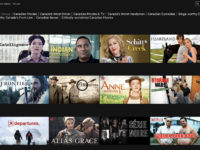CBC President Catherine Tait appeared on a panel of Canadian media leaders earlier today at the Prime Time in Ottawa conference devoted to “a look ahead.” After cutting off the Netflix representative at one point and complaining that his comments were running too long, Tait concluded with a stunning and wholly inappropriate analogy to characterize the impact of Netflix in Canada:
I was thinking of the British Empire and how if you were there and you were the Vice-Roy of India you would feel that you were doing only good for the people of India. Or similarly, if you were in French Africa, you would think I’m educating them, I’m bringing their resources to the world, and I’m helping them. There was a time where cultural imperialism was absolutely accepted and, in fact, if you were a history student you would be proud of the contribution that these great empires gave.
I would say we are at the beginning of a new empire and just as it is probably the most exciting time in terms of screened entertainment, that I certainly in my career that I’ve ever experienced in terms of quality. When I watched “My Brilliant Friend” I was so moved to see a fantastic Italian language show with an Italian dialect. So unbelievable to be able to experience this cultural sharing. So for this we are very grateful to Netflix. However, fast forward, to what happens after imperialism and the damage that can do to local communities. So all I would say is let us be mindful of how it is we as Canadians respond to global companies coming into our country.











